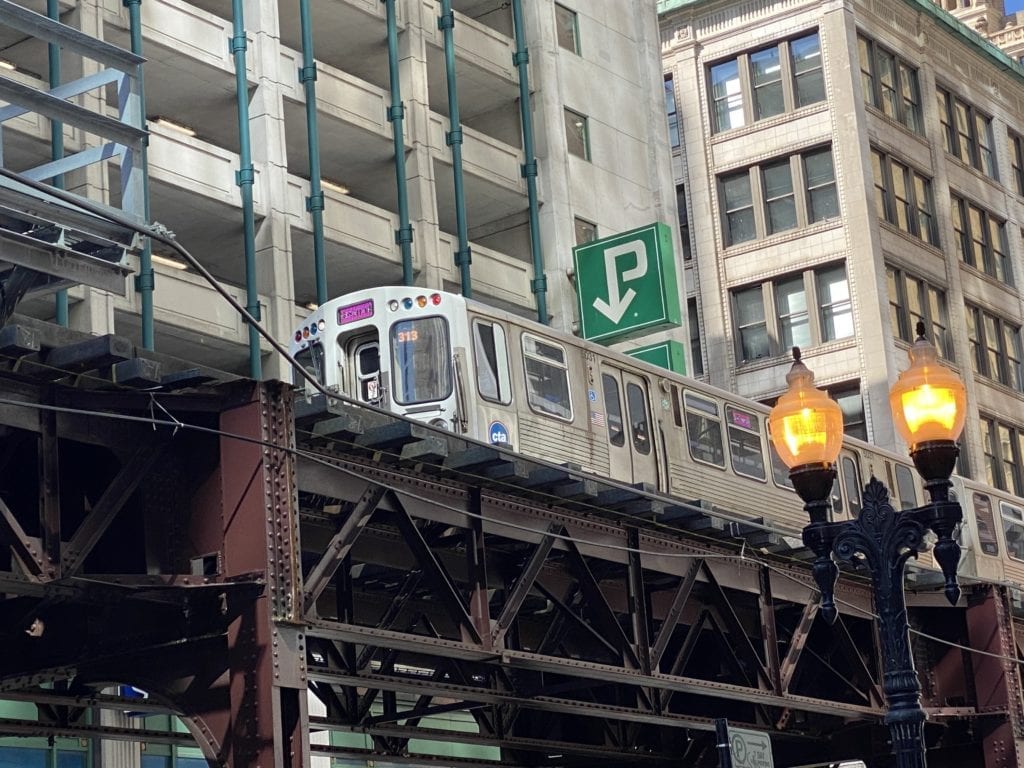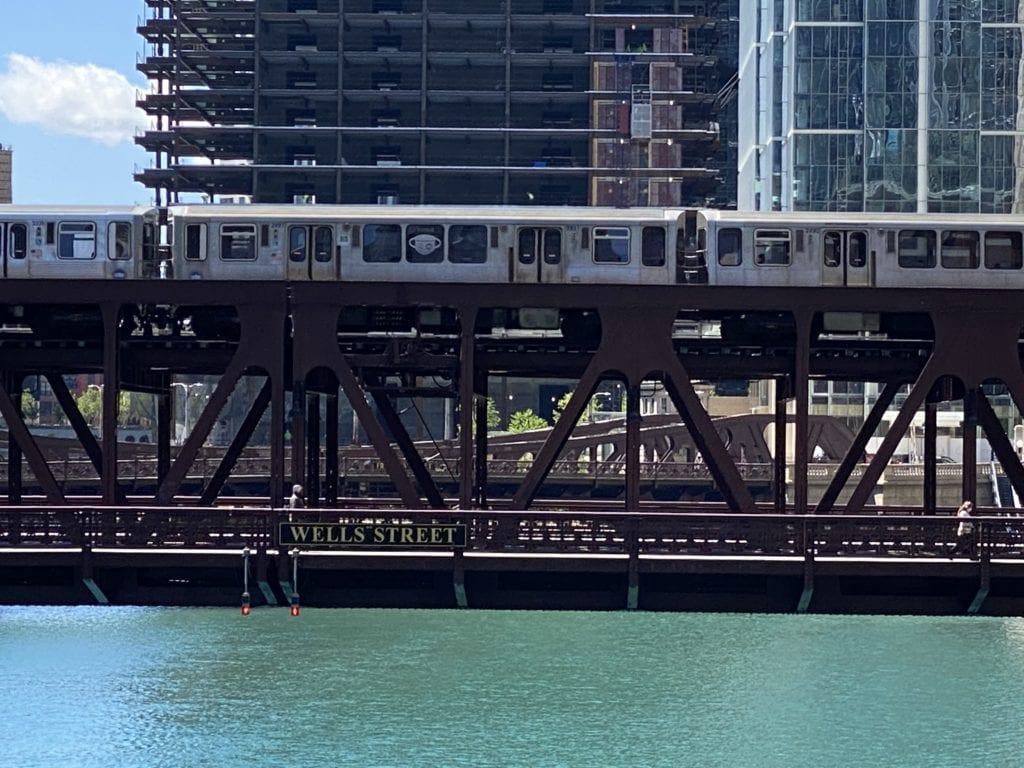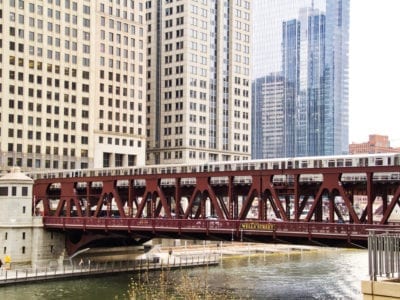Brian J Graber LLC is a rapid transit whistleblower lawyer representing employees retaliated against by their employer in violation of Rapid Transit Whistleblower Law in Illinois, Indiana, and Michigan. The National Transit System Security Act, (NTSSA), 6 U.S.C. §1142, protects employees of urban rapid transit rail systems like the Chicago Transit Authority’s “L” from retaliation for engaging in certain protected activities like reporting violations of Federal law, testifying, reporting hazardous conditions, refusing to work when confronted with a hazardous safety or security condition. The NTSSA protects a public transportation authority’s contractor or subcontractor’s employees from retaliation for certain protected activities. The NTSSA’s Whistleblower Protection provisions impose liability on officers or employees of the public transportation agency for retaliation.
NTSSA PROTECTED ACTIVITY
I. GENERAL PROTECTED ACTIVITY UNDER NTSSA
The NTSSA, 6 U.S.C. §1142(a)(1) is a rapid transit whistleblower law that makes it unlawful for a public transportation agency, a contractor or a subcontractor of such agency, or an officer or employee of such agency to discharge, demote, suspend, reprimand, or in any other way discriminate against an employee if the discrimination is due, in whole or in part, to the employee’s lawful, good faith act done, or perceived by the employer to have been done or about to be done:
- To provide information, directly cause information to be provided, or otherwise directly assist in any investigation regarding any conduct which the employee reasonably believes constitutes a violation of any Federal law, rule, or regulation relating to public transportation safety or security, or fraud, waste, or abuse of Federal grants or other public funds intended to be used for public transportation safety or security, if the information or assistance is provided to or an investigation stemming from the provided information is conducted by: (a) a Federal, State, or local regulatory or law enforcement agency (including an office of the Inspector General); (b) any member of Congress, any Committee of Congress, or the Government Accountability Office; or (c) a person with supervisory authority over the employee or such other person who has authority to investigate, discover, or terminate the misconduct.
- Refuses to violate or assist in the violation of any Federal law, rule, or regulation relating to public transportation safety or security.
- File a complaint or directly cause to be brought a proceeding related to the enforcement of this section or to testify in that proceeding.
- Cooperate with a safety or security investigation by the Secretary of Transportation, the Secretary of Homeland Security, or the National Transportation Safety Board.
- Furnish information to the Secretary of Transportation, the Secretary of Homeland Security, the National Transportation Safety Board, or any Federal, State, or local regulatory or law enforcement agency as to the facts relating to an individual or damage to property occurring in connection with public transportation.

II. PROTECTED ACTIVITY – HAZARDOUS SAFETY OR SECURITY CONDITIONS
The NTSSA, 6 U.S.C. §1142(b) makes it unlawful for a public transportation agency, or a contractor or a subcontractor of such agency, or an officer or employee of such agency, shall not discharge, demote, suspend, reprimand, or in any other way discriminate against an employee for:
- Reporting a hazardous safety or security condition. (Only this Section applies to security personnel, including transit police, employed or utilized by a public transportation agency to protect riders, equipment, assets, or facilities.).
- Refusing to work when confronted by a hazardous safety or security condition related to the performance of the employee’s duties, if (a) the refusal is made in good faith and no reasonable alternative to the refusal is available to the employee; (b) a reasonable individual in the circumstances then confronting the employee would conclude that the hazardous condition presents an imminent danger of death or serious injury, and the urgency of the situation does not allow sufficient time to eliminate the danger without such refusal; and (c) the employee, where possible, has notified the public transportation agency of the existence of the hazardous condition and the intention not to perform further work, or not to authorize the use of the hazardous equipment, track, or structures, unless the condition is corrected immediately or the equipment, track, or structures are repaired properly or replaced.
- Refusing to authorize the use of any safety-or security – related equipment, track, or structures, if the employee is responsible for the inspection or repair of the equipment, track, or structures, when the employee believes that the equipment, track, or structures are in a hazardous condition, if (a) the refusal is made in good faith and no reasonable alternative to the refusal is available to the employee; (b) a reasonable individual in the circumstances then confronting the employee would conclude that the hazardous condition presents an imminent danger of death or serious injury, and the urgency of the situation does not allow sufficient time to eliminate the danger without such refusal; and (c) the employee, where possible, has notified the public transportation agency of the existence of the hazardous condition and the intention not to perform further work, or not to authorize the use of the hazardous equipment, track, or structures, unless the condition is corrected immediately or the equipment, track, or structures are repaired properly or replaced.
EMPLOYEE’S BURDEN OF PROOF
Under 29 C.F.R. §1982.104(e)(2)(i)-(iv) an employee claiming he or she suffered retaliation in violation of the NSTAA Rapid Transit Whistleblower Law provisions must generally prove that:
- The employee engaged in one or more of the above-described categories of NSTAA protected activity.
- The employer/manager knew or suspected that the employee engaged in the NSTAA protected activity.
- The employee suffered retaliatory action; and
- That the NSTAA protected activity was a “contributing factor” in the retaliatory action.
A “contributing factor” is a factor which, alone or with other factors, in any way affects the outcome of a decision. Each and every case is different and each case requires a detailed legal analysis by an experienced employment attorney. Several other factors alleged by the employer may require further legal analysis and could have an effect on the ultimate outcome of the potential litigation. If you believe you were retaliated in violation of the NSTAA, contact BRIAN J GRABER LLC a rapid transit whistleblower lawyer for a free confidential consultation in Illinois at (312) 291-4648, Indiana at (574) 395-5189, or in Michigan at (269) 230-6054 or by email.

STATUTE OF LIMITATIONS AND 210 DAY “KICK-OUT” PROVISION
The NSTAA, 6 U.S.C. §1142(c)(1) requires the employee who believes he or she has been discharged or discriminated against by an employer to file a Whistleblower Complaint against all responsible parties with the U.S. Department of Labor/OSHA not later than 180 days after the date on which such violation occurs. Failure to timely file a Whistleblower Complaint may bar the employee from ever recovering under the NSTAA Whistleblower provisions. However, even if you have missed the 180-day statute of limitations to file an NSTAA Whistleblower Complaint, it is still worth it to consult an attorney because you could have valid claims under other rapid transit whistleblower laws like the Illinois Whistleblower Act or the Illinois common law tort of retaliatory discharge which have a one-year statute of limitations period. Brian J Graber LLC prepares and files Whistleblower Complaints under the NSTAA with OSHA for our clients who have retained our legal services. Contact Brian J Graber LLC, a rapid transit whistleblower lawyer in Illinois at (312) 291-4648, or Indiana at (574) 395-5189, or Michigan at (269) 230-6054 for a free consultation.
The NSTAA, 6 U.S.C. §1142(c)(7) allows an employee to file a lawsuit against all defendants named in the Whistleblower Complaint filed with OSHA in the U.S. District Courts if OSHA has not reached a final decision on the Whistleblower Complaint within 210 days after the Whistleblower Complaint filed with OSHA and the delay was not due to any bad faith on the part of the employee. This option is known as the “kick-out” provision. An employee deciding to exercise his or her rights under the “kick-out” provision can seek a jury trial on all issues. An employee who decides to proceed administratively will have an administrative law judge decide all issues without a right to a jury trial.
Contact Brian J Graber LLC, a rapid transit whistleblower lawyer in Illinois at (312) 291-4648, or in Indiana at (574) 395-5189, or in Michigan at (269) 230-6054 if you would like a free consultation on your rights under the NSTAA Whistleblower Protection provisions.
